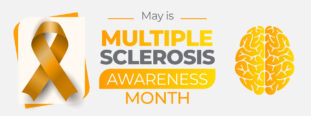Dealing with MS fatigue – what works?
Most people with multiple sclerosis experience fatigue. It’s not the normal feeling of being tired, but more of a sick weariness that sucks the energy out of mind and body. It’s hard to explain to a boss, a spouse or the kids. Also inexplicable is the reason for it, although various theories (e.g. MS lesions, immune activation, neural excitability, etc.) have been proposed (Yusuf & Koski. J Neurol Sci 2013;330:4-9). Small comfort to those – about 40% overall – who say that fatigue is their most disabling MS symptom (Bakshi R. Mult Scler 2003;9:219-227).
So what can be done about it?
There are literally hundreds of studies that have looked at different strategies for managing fatigue, and some recent reviews have summarized the results and raised some important points.
First of all, “fatigue” is not a very specific term and different bouts of MS fatigue are not necessarily the same. So it may be helpful for you and your doctor to try to tease out just what your fatigue really entails (Kluger and colleagues. Neurology 2013;80:409-416).
Is the fatigue related to something physical? Are you tired because of exercise, mobility difficulties, pain or muscle weakness? Are you getting enough sleep or sleeping poorly? Are you more fatigued after getting overheated (after hot bath/hot tub, or sitting in the sun)?
Is your fatigue related to psychological factors? Is your sense of feeling tired associated with depression, or feeling overwhelmed by the day-to-day? Do you feel overburdened and unmotivated? Does everything feel like it’s just too much effort and not worth the trouble? Or are you feeling discouraged because things take longer to do?
A reason for asking these questions is to see if there might be tailored strategies or specific people that could address the problem. For example, getting a little extra help with daily chores, scheduling harder tasks for your higher-energy periods (e.g. in the morning rather than late afternoon), taking naps or avoiding heat can often make things easier (Blikman and colleagues. Arch Phys Med Rehabil 2013;94:1360-1376). Addressing specific symptoms, such as depression or anxiety, with therapy/counselling or medications can also help. Medications and assistive devices can ease some mobility problems.
Recent reviews of the many studies that have been done have also offered some advice on what works best for fatigue.
1. Exercise. It might seem counterintuitive to expend energy if you’re fatigued, but a bit of exercise can prime the pump and leave you feeling better overall. Part of the benefit is the mental lift you get. But regular exercise has also been shown to improve muscle strength (which in turn helps with walking, balance and muscle function) and aerobic capacity (so less fatigue) (Latimer-Cheung and colleagues. Arch Phys Med Rehabil 2013;94:1800-1828). Swimming appears to be one of the better forms of exercise – it involves all of the major muscle groups and won’t leave you overheated. Many other things have been studied – climbing, cycling, yoga, balance training, treadmill walking, resistance training – but the specific exercise probably doesn’t matter. What’s more important are if you like to do it (which keeps you motivated) and you practice it on a regular basis. High-intensity exercise doesn’t appear to be more effective than more modest exercise (and may leave you feeling more wiped out). So it’s better to try to do a little something every day rather than make plans to climb Mount Everest.
2. EAT. This is an acronym (Education, Awareness, Therapy) rather than a plea for overindulgence. Education/Awareness/Therapy appears to be as effective as regular exercise in managing your fatigue (Latimer-Cheung 2013). There are many types of activity you can do, depending on your personal preferences. Energy management means scheduling your tasks according to the fluctuations in your energy during the day. Mindfulness is a type of therapy that focuses you in the now (your body, your thoughts and feelings) to help you cope with depression, anxiety and fatigue. Other therapies are directed at behaviours that will improve fatigue (Heesen and colleagues. Expert Rev Neurother 2012;12:1089-1100), or working out how to make tasks easier. Your MS clinic can refer you to the many experts who can help, such as occupational or physical therapists, physiatrists for rehabilitation, psychologists or other therapists.
3. Medications. As a general rule, medications appear to have less impact on fatigue compared to Exercise and EAT (Latimer-Cheung 2013). There is some evidence to suggest that fatigue can improve with the usual MS medications. One study found that people had less fatigue during treatment with Copaxone compared to an interferon, which may be due to the tiring and tiresome flu-like symptoms with the interferons (Metz and colleagues. J Neurol Neurosurg Psychiatry 2004;75:1045-1047). Among the newer medications, improvements in MS fatigue have been reported with Tysabri and Gilenya (Svenningsson and colleagues. PLoS One 2013;8:e58643; Montalban and colleagues. Mult Scler 2011;17:1341-1350). Some therapies, such as Tecfidera and Aubagio, may be associated with fatigue, which may be an MS effect rather than a drug effect (Kappos and colleagues. Lancet 2008;372:1463-1472; Confavreux and colleagues. Mult Scler 2012;18:1278-1289).
Among the treatments specifically used for fatigue, the most studied is amantadine (Symmetrel) (Krupp and colleagues. Neurology 1995;45:1956-1961). While this may work for some people, its effects are generally modest and one study found that it was no more effective than Aspirin (Shaygannejad and colleagues. Neurol Res 2012;34:854-858). Another option is modafinil (Alertec, Provigil, Modavigil), which stimulates alertness (it’s also used in narcolepsy) (Lange and colleagues. J Neurol 2009;256:645-650; Niepel and colleagues. Neuropharmacology 2013;64:380-388). As you might expect, side effects can may include insomnia and nervousness (Kumar R. Drugs 2008;68:1803-1839). So its effects are a little like caffeine, which has also been found to have a modest impact on MS fatigue (Gillson and colleagues. Mult Scler 2002;8:30-35).
For a less pharmaceutical approach, one small study found that ginseng can relieve fatigue (Etemadifar and colleagues. Int J Neurosci 2013;123:480-486). A different study of American ginseng found it had no effect on fatigue (Kim and colleagues. Mult Scler 2011;17:1523-1526). A small pilot study reported that gingko supplements may relieve fatigue in some people (Johnson and colleagues. Explore (NY) 2006;2:19-24). There is also some evidence that the dietary supplement acetyl L-carnitine may help fatigue in MS (Tomassini and colleagues. J Neurol Sci 2004;218:103-108).
It’s best to talk to your doctor or pharmacist before you take any medication – including dietary supplements, alternative medicines or over-the-counter drugs – because they can interact with other drugs you may be taking.
Share this article
Facebook Twitter pin it! Email
Related Posts
Back





